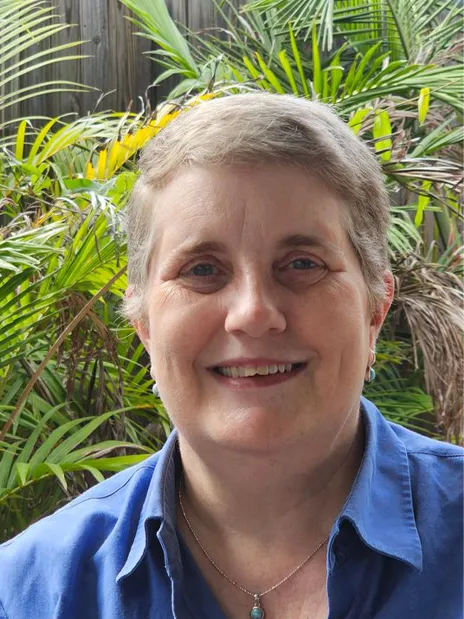Energy and Environmental Science
Exceptional research to accelerate the global energy transition
Editor-in-Chief: Jenny Nelson
Open Access: Hybrid

Energy & Environmental Science is an international journal dedicated to publishing exceptionally important and high quality, agenda-setting research tackling the key global and societal challenges of ensuring the provision of energy and protecting our environment for the future.
ISSN: 1754-5706
Indexed in: Web of Science, Scopus, Science Citation Index (SCI)
Journal Impact factor
30.8 (2024)
First decision time (all)
10 days
First decision time (peer reviewed)
41 days
Scope
The scope is intentionally broad and the journal recognises the complexity of issues and challenges relating to energy conversion and storage, alternative fuel technologies and environmental science. For work to be published it must be linked to the energy-environment nexus and be of significant general interest to our community-spanning readership. All scales of studies and analysis, from impactful fundamental advances, to interdisciplinary research across the (bio)chemical, (bio/geo)physical sciences and chemical engineering disciplines are welcomed.
Topics include, but are not limited to, the following:
- Solar energy conversion and photovoltaics
- Solar fuels and artificial photosynthesis
- Fuel cells
- Hydrogen storage and (bio) hydrogen production
- Materials for energy systems
- Capture, storage and fate of CO2, including chemicals and fuels from CO2
- Catalysis for a variety of feedstocks (for example, oil, gas, coal, biomass and synthesis gas)
- Biofuels and biorefineries
- Materials in extreme environments
- Environmental impacts of energy technologies
- Global atmospheric chemistry and climate change as related to energy systems
- Water-energy nexus
- Energy systems and networks
- Globally applicable principles of energy policy and techno-economics
Readership
The journal appeals to chemical scientists, chemical and process engineers, energy researchers, bio-scientists and environmental scientists from across academia, industry and government.
Information for authors
Want to publish in this journal? Our author guidelines explain how to prepare and submit your article and provide useful information on the review and publication process including transfers, revisions and any article processing charges (APCs) that may apply.
You can read our payments and funding information for further details about APCs, which may apply for publishing open access in this journal, as well available discounts and waivers.
You may be able to publish open access in this journal, with no APC to pay, if your institution has an open access agreement with us. You can use our journal finder tool to check for agreements between us and your institution.
Meet the team


Xinhe Bao
State Key Laboratory of Catalysis








Markus Antonietti
Max Planck Institute of Colloids and Interfaces
Bernie Bulkin
Sustainable Development Commission
Stephen Campbell
Automotive Fuel Cell Cooperation
Emily Carter
Princeton University
Kylie Catchpole
Australian National University
Wonyong Choi
Korea Institute of Energy Technology
Ib Chorkendorff
Technical University of Denmark
Peter Dobson
University of Oxford
Nieves Espinosa
University of Murcia
Hongjin Fan
Nanyang Technological University
Elzbieta Frackowiak
Poznan University of Technology
Hermenegildo García
Instituto de Tecnología Química CSIC-UPV
José Goldemberg
University of São Paulo
Harry Gray
California Institute of Technology
Laura Herz
University of Oxford
Steven Holdcroft
Simon Fraser University/NRC
George Huber
University of Wisconsin-Madison
Oliver Inderwildi
University of Oxford
Professor Saiful Islam
University of Oxford
Mercouri G Kanatzidis
Northwestern University
Thomas Kirchartz
Forschungszentrum Jülich
Akihiko Kudo
Tokyo University of Science
Pooi See Lee
Nanyang Technological University
Nathan Lewis
California Institute of Technology
Chengdu Liang
Center for Nano-phase Materials Sciences Oak Ridge National Laboratory
Jeffrey R Long
University of California Berkeley
Christopher R McNeill
Monash University
Shelley Minteer
The University of Utah
Arthur Nozik
National Renewable Energy Laboratory
Satish Ogale
Indian Institute of Science Education and Research (IISER)
Annamaria Petrozza
Istituto Italiano di Tecnologia
Zhiyong Jason Ren
Princeton University
Rodney Ruoff
Ulsan National Institute of Science & Technology
Srinivasan Sampath
Indian Institute of Science
Uwe Schröder
TU-Braunschweig
David Sinton
University of Toronto
Henry Snaith
Oxford University
Robert Socolow
Princeton University
Jefferson W Tester
Cornell University
Peng Wang
Changchun Institute of Applied Chemistry
Michael R Wasielewski
Northwestern University
Bilge Yildiz
Massachusetts Institute of Technology (MIT)
Kyung Byung Yoon
Sogang University
Yan Yu
University of Science and Technology
Jincai Zhao
Center for Molecular Science
Tim S Zhao
Hong Kong University of Science and Technology
Emma Eley
Executive Editor
Edward Gardner
Deputy Editor
Sarah Holmes
Deputy Editor
Nour Tanbouza
Development Editor
Claire Darby
Editorial Manager
Katie Fernandez
Associate Editorial Manager
Sam Keltie
Publisher
Robin Brabham
Publishing Editor
Emma Carlisle
Publishing Editor
Hannah Hamilton
Publishing Editor
Ephraim Otumudia
Publishing Editor
Rebecca Milne
Publishing Editor
Irene Sanchez Molina Santos
Publishing Editor
Michael Spencelayh
Publishing Editor
Callum Woof
Publishing Editor
Linda Warncke
Publishing Assistant
Kate Bandoo
Editorial Assistant
Read this journal
Paper
Techno-economic and life-cycle assessment for syngas production using sustainable plasma-assisted methane reforming technologies
Paper
High-efficiency ammonia electrosynthesis from nitrate on ruthenium-induced trivalent cobalt sites
Paper
Biomass-derived functional additive for highly efficient and stable lead halide perovskite solar cells with built-in lead immobilisation
Paper
Charge carrier management for highly efficient perovskite/Si tandem solar cells with poly-Si based passivating contacts
More from this journal
Contact the journal team
We're here to help. Contact the journal team if you have any questions about publishing your paper with us.
Sign up for journal email alerts
Get table of contents alerts and notifications about calls for papers, themed issues and more.
